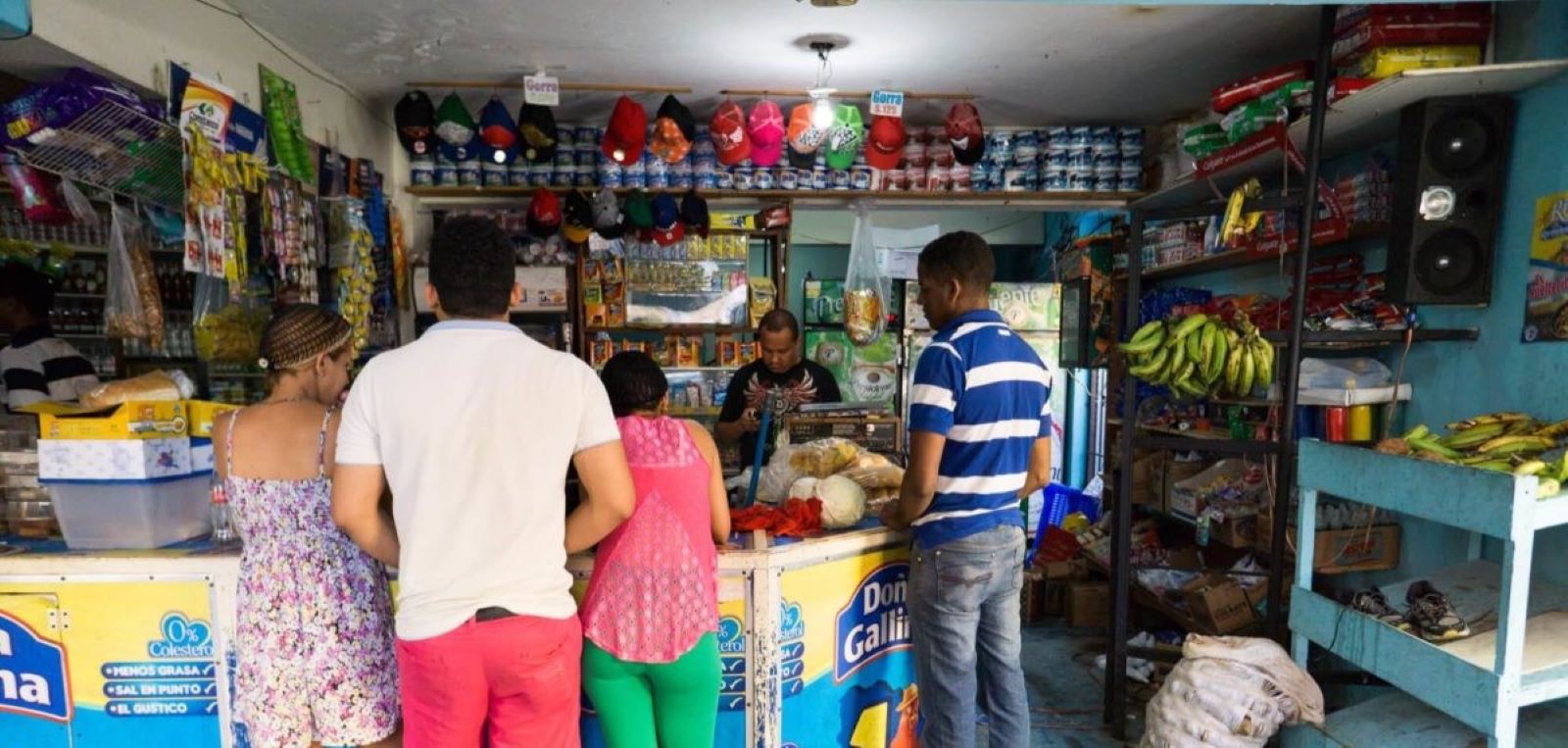Digitized Government Transfers & Credit for Cash Transfer Beneficiaries

Customers at a store that accepts Solidaridad funds | Photo Credit: Carson Christiano
Context
Few conditional cash transfer (CCT) recipients “graduate” from their programs: more often, they become dependent on payments and never fully emerge from poverty. One potential solution may be the introduction of novel credit products that help beneficiaries make productive investments and better manage their income-generating activities, such as digital government-to-person (G2P) payments.
This study explores the potential of banks in the Dominican Republic to provide low-interest microcredit to beneficiaries of Solidaridad, the national cash transfer program. Low rates are possible because beneficiaries can automatically repay their loans through their monthly benefit stream, thus drastically reducing the risk of default and the cost of following up with delinquent customers. The availability of affordable credit may allow households to make productive investments more quickly, and without the need to save for long periods of time.
Study Design
In partnership with the government of the Dominican Republic and multiple DR banks, the research team is rigorously evaluating a novel credit product that allows beneficiaries of the national cash transfer program, Solidaridad, to borrow small amounts and automatically repay through their benefits stream. Specifically, the study randomizes which product is offered to beneficiaries to measure the relative welfare impacts of the new credit product (lower interest rates and automatic repayment) compared to the impacts of the existing credit product, which is more similar to existing microcredit products (higher interest rates without automatic repayment). In addition to consumption, researchers are measuring microenterprise profits, income, female empowerment, trust in financial institutions, subjective well-being, saving behavior, and take-up of other financial products. Treatment groups are established by randomly offering the new product to applicants in the study sample who pass the credit screening process described above.
Results and Policy Lessons
Results are forthcoming.

